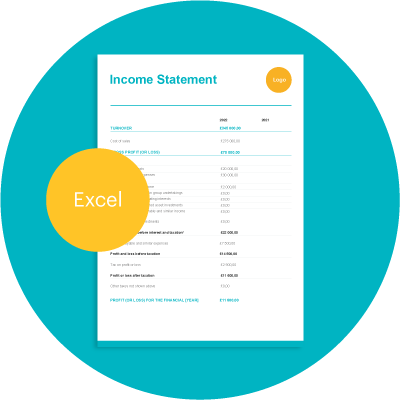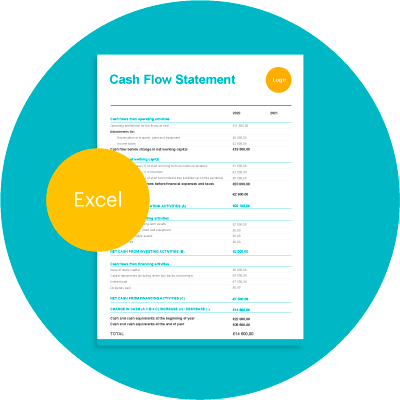
Invoice Numbering Basics | How To Number Invoices
Invoicing numbering is a no-brainer.
It will save you a lot of hassle (and manual work) if you ensure that your invoice numbering system is done properly from the very beginning and follows the same pattern.
Each new invoice you create should be given a unique identification number which allows you to easily find, match and reference specific invoices at a later date.
Table of Contents
What is an invoice number?
Invoice numbering is the process of giving each invoice you send out a unique number. This allows you to track it from the moment it is sent out until the money arrives in your bank account. You can also, at a glance, see which bills have been paid and which are still open.
Essentially, invoicing numbering makes your life easier and ensures all your income is properly documented – plus you’ll be able to track all the payments made. This may sound simple at the beginning, but once you start sending out more and more invoices as your company grows, they become increasingly harder to track.
If you haven’t numbered your invoices, you run the risk of payments slipping through the cracks.
Each invoice keeps the same number forever, so if you ever need to go back to an old invoice for tax purposes, you can just type in the invoicing number and look up the information in an instant.
What is payment reconciliation?
This is the method of bookkeeping that compares your internally logged financial records with your bank statement, to make sure that everything matches up. It ensures that your incoming payments match up with the invoices you have sent out. This can only be achieved by having a strong, simple and working invoice numbering system.
It also matches up all of your outgoings with your expenses, which is a massively important factor for when the taxman comes calling.
Why do I need to match payments with invoices?
The first reason is that it prevents any errors from occurring in your financial records. For example, an invoice may have been paid by your customer and received by your bank but they could have used the wrong reference number. Therefore, you have the cash but don’t know where it came from.
This will, of course, affect the amount you are taxed, causing issues when your monthly figures don’t add up.
Secondly, it can help you identify theft. Payment reconciliation keeps track of everything that goes in and out of your account, so if you are lacking funds then fraud can be investigated quickly and easily.
For more info on payment reconciliation, check out our upcoming bank feed feature.
What invoice number should I start with?
Logic would tell you to start with a ‘0’ or ‘1’, but then how many other companies are starting with that? Try beginning with your company’s initials.
So, if your firm is called John Shankland Plumbing, begin your invoice with JSP0001. This gives you a unique ID if you are sending bills to large companies that deal with many invoices at a time. It also gives your number meaning, rather than being random and, in some cases, a little suspicious.
After you have put your identifier in, then begin sequentially. Starting your invoice number ‘JLS0009’ may seem logical if you are sending it in September, but it is going to cause a great deal of confusion further down the line.
It is very important to begin each new month by continuing the sequence and not starting all over again with, for example, JLS0001, JLS0002, etc. Keep the sequence going and hopefully one day you’ll need to add an extra digit on the end.
Uploading invoices to the cloud
Uploading your invoices to the cloud has many benefits. As well as offering a high level of security, doing this is:
- Ecological
- Efficient
- Easy
- Scalable
- Cost-effective
Further, you can access your invoices wherever you are on any device. If you need help with anything related to invoicing online, get in touch or create a free account with Zervant to try easy invoicing, anywhere, any time.
Keep your invoices!
Of course, this can be done electronically, but if you have the room then dedicate some office space to these priceless nuggets of history. There is always the desire to free up space, both digitally and physically, but an audit can occur at any time and they are a very useful reference – even years in the future.
We recommend that you keep your invoices for up to 10 years.
Here are four reasons why should keep your invoices:
- They are an excellent reference point if a client wants to know how much they paid for a certain project
- The tax authorities may also require you to prove how much you earned in a specific tax year – particularly if you’re audited.
- If an old client gets in touch for a new project, you can easily see how much you charged them and how long they took to pay their previous invoices.
- It also lets you track how your business is doing as you continue to update your business plan.
Recap
To recap, make sure your invoice consists of:
- A unique number given to each invoice, so it can be easily tracked
- A code at the start that defines your company
- Either numbers alone or a combination of letters and numbers
It seems so simple, but invoice numbering can make your life much, much easier.
Spending the time to get things right now means you are well placed to make sure your accounting process is smooth, easy and pain-free.


